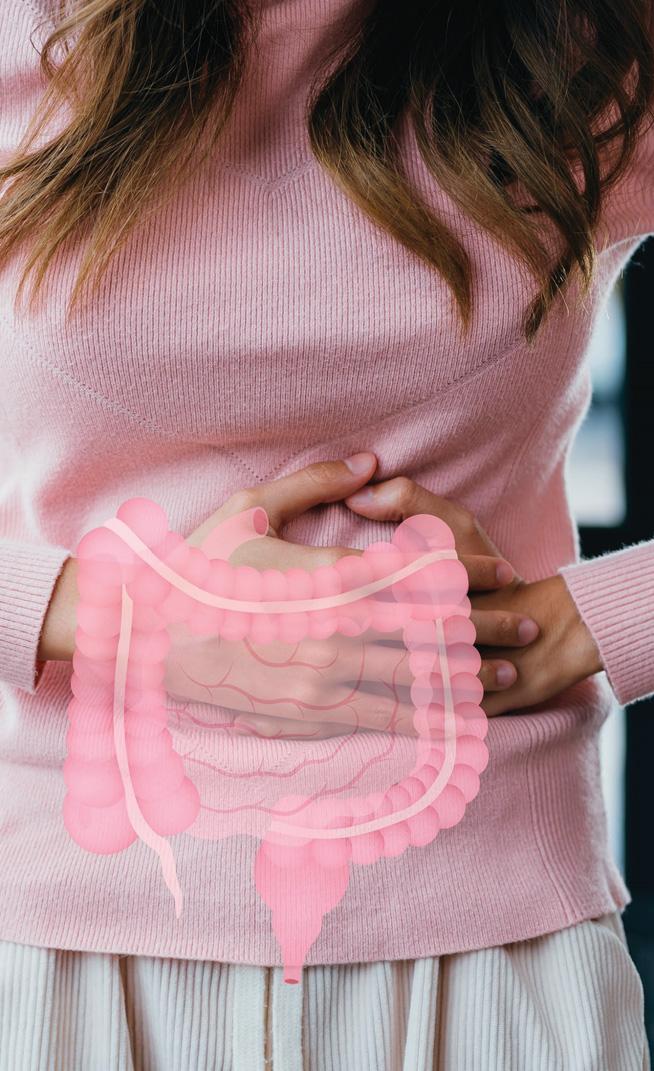
The two main types of IBD are Crohn's disease and ulcerative colitis. IBD is vastly different to irritable bowel syndrome (IBS), although symptoms may be similar.
Main IBD symptoms include diarrhoea lasting several weeks, abdominal pain, passing blood or mucus (slime), bleeding from the bottom, tiredness and losing weight without trying. The cause is unclear, but it's your immune system attacking your bowel, causing inflammation. It's probably linked to a mix of genetic and environmental factors (such as germs, diet, smoking or stress), and affects about one in 123 people in the UK, especially those with a family history.
IBD can start at any age, usually before you're 30. If you have these symptoms, see your GP, who'll examine you, do tests then refer you to a specialist for further investigation and treatment. Everyone is different: some feel mostly well, others have more persistent symptoms.
The overactive immune system can cause other problems, such as swollen joints, mouth ulcers and inflamed eyes. Crohn's can affect all gut layers from mouth to anus. Ulcerative colitis only affects the inner colon layers, causing large bowel inflammation and ulcers, although it can be as serious.
This story is from the September 12, 2023 edition of Woman's Weekly.
Start your 7-day Magzter GOLD free trial to access thousands of curated premium stories, and 9,000+ magazines and newspapers.
Already a subscriber ? Sign In
This story is from the September 12, 2023 edition of Woman's Weekly.
Start your 7-day Magzter GOLD free trial to access thousands of curated premium stories, and 9,000+ magazines and newspapers.
Already a subscriber? Sign In

10 OF THE BEST Buys for CHARITY
Look great and support Breast Cancer Awareness Month this October

How to HAGGLE
Save those £££s by plucking up the courage to negotiate

Your wellbeing
LATEST HEALTH SOLUTIONS FOR YOUR MIND AND BODY

Here to help
LET COUNSELLOR KEREN LIGHTEN YOUR LOAD

Good to GLOW
Plant your bulbs now for a lovely bright start to spring

Painted VASES
Prettify empty jars and bottles with this quick craft project

Escape to OXFORD
Delve into the city's rich cultural heritage for a wonderful weekend

Sail through menopause WITHOUT WEIGHT GAIN!
Middle-aged spread may seem inevitable - but it really doesn't have to be

Woodland wonders
When you go down to the woods, you'll find a whole new world teeming with life

'We should all be dancing'
Singer and actor Toyah Willcox on overcoming adversity, ageing and Strictly Come Dancing